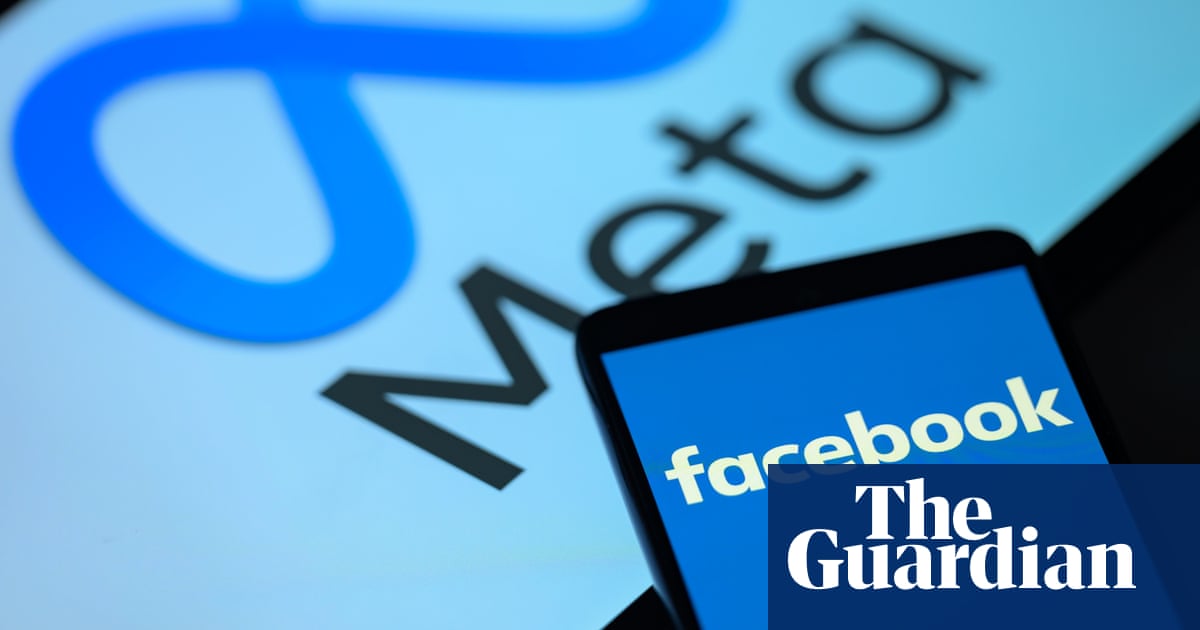Even before what Keir Starmer described as “far-right riots” in England last summer, alarm bells were ringing amid fears older people were even more susceptible to misinformation and radicalisation than younger “digital natives”.
Suspects were generally older than those charged in the 2011 unrest, according to a Guardian analysis of hundreds of defendants that found that as many as 35% were in their 40s or older.
However, after Mark Zuckerberg announced last week that Meta would replace factcheckers with a crowdsourced system and recommend more political content, there is now new concern about the potential radicalisation risks on Facebook, the social media platform of choice for many older people.
…
“It’s clearly a retrograde step that comes with all sorts of risks,” said Dr Sara Wilford of De Montfort University, a lead researcher on a pioneering Europe-wide project called Smidge (Social Media Narratives: Addressing Extremism in Middle Age).
“X might be the model for the crowdsourced ‘community notes’ approach that Meta seems to be embracing, instead of professional moderators, but it just won’t work in the same way with Facebook, which very much operates in little silos or closed groups. I’m concerned that, for middle-aged Facebook users who risk being exposed to extremist content, it will be even harder to discern the truth.”
The anti-extremism campaign group Hope not Hate also told the Guardian it feared Zuckerberg’s announcement was a prelude to far-right figures and groups, such as Tommy Robinson and Britain First, being allowed back on to Facebook.
Britain First proved particularly adept at using the platform before it was banned, amassing 2m likes – at that stage surpassing Labour (1m) and the Conservatives (650,000).
…
When it came to the riots, Hope not Hate said Facebook was used in a particular way by the far right, in contrast to other platforms. “Telegram was for whipping up the most extreme hate, or sometimes plotting and planning, while X was used to to disseminate that message,” said Joe Mulhall, the anti-racism campaign group’s director of research.
“Facebook was then often where you would see a group creating hyperlocal targeted content, with a page popping up around a specific event. We’ve also seen over the last three to four years that anti-migrant protest Facebook groups were really fundamental in organising the targeting of asylum centres.”
…
Brexit, Trump’s 2016 win and the Covid pandemic acted as catalysts for engagement with more extreme forms of rightwing politics via Facebook, according to Dr Natalie-Anne Hall, a lecturer at Cardiff University and author of Brexit, Facebook, and Transnational Right-Wing Populism.
“Facebook is a key site for algorithmically driven encounters with these harmful ideas within people’s everyday practices of social media use. Meta should be doing more, not less, to combat this harm,” she said.
“Zuckerberg’s comments and Meta’s new position on this issue will only serve to embolden the misplaced sense of victimhood among those with antiprogressive views that research has shown feeds into radicalisation.”
Seems to be a number of stories making up possible things that can be said now that “fact-checkers” are gone. It’s all fabricated outrage as it’s all hypotheticals.
Personally I’m happy to see the back of them. No corporation should be in a position of defining truth.
40+ is not Boomers, it’s Gen X and Millenials too…
Feels a bit like the horse has already bolted. I am very against this move and also believe everyone should delete their Facebook accounts (I did so years ago and not missed anything). However, it feels like (a) it’s already happened so people are in these bubbles where the fact checks won’t help and (b) it feels like it’s mostly shared through WhatsApp groups where there is no content moderation.
I really want to delete WhatsApp but all my family and friends use the groups, and just don’t care enough about this stuff to bother moving elsewhere. I only know one person who isn’t on it and have no groups of people not using it as their main form of communication within those groups.
I’ve been (gently) persuading my friends and family to move away from meta platforms for years; until now mostly they don’t care about the concerns I have and obviously I can’t make them. Now (this week) is the first time I feel like they’re starting to listen so I’m cautiously optimistic. I know a few people who have left Twitter in the last year having been big users (myself being one of them), hopefully the same reasoning will resonate with them again.
Can we call Israel a genocidal state yet?
“Fact checking” my balls
i dunno the majority of people sharing spectator, unherd, and reduxx are under 40
This tripe assumes that “boomers” - which I assume means people born before the internet became widespread, since true boomers aren’t middle-aged anymore - can’t discern the truth from fakery as well as newer generations, and I contend that it’s the opposite.
As a gen-Xer, my brain was formatted on correct science, logic and verified facts, and I was taught critical thinking and the constant application of Occam’s razor. I feel better equiped to face untruths, fake news and propaganda than people who grew up when all that was already on shaky grounds.
I’m not saying young people are all gullible, I’m saying don’t assume older people are just because they’re older.
An analysis by researchers at New York and Princeton Universities found older users shared more fake news than younger ones regardless of education, sex, race, income, or how many links they shared. In fact, age predicted this behaviour better than any other characteristic — including their party affiliation.
ok boomer
What age group get scammed the most, do you think?
The very old seem particularly vulnerable, either because they become dependent and too trustworthy with age - a known phenomenon - or this messed up world really is too far from theirs, or they’re losing it.
For folks who are fully in control of their mental faculties, I really don’t know which age group is most at risk, or even if there is one. I think the ability to not be fooled is a result of education and critical thinking. The former has been arguably going downhill for decades - and it started way before I went to school myself - and the latter is difficult to acquire when you grow up in a world that’s basically constantly trying to lie to you all the time.
Although I will say this: I observe young people and they seem to have a kind of constant cynicism towards just about everything that is fed to them. Perhaps that’s their particular way of hardening themselves against the ever-present BS. In other words, they probably cope differently than we do.
I guess if you wanted to have precise data on age groups at risk of being scammed, a good starting point would be the distribution of Trump voters in otherwise homogenous demographics.
My in laws were literally a metallurgist and a science teacher in their employed lives. Now they’re worshipping musk and a red hat away from being magats.
No one is immune to propaganda. No one is immune to herd instinct. And no one is immune to a logic fault.
Immune, no. But better equipped to resist joining the dumb side, yes.
You were just literally told an anecdote of people supremely well equipped to resist falling in headfirst but did anyway. Your response is ‘but we’re smarter than the idiots’
You are nowhere near as well equipped as you think you are.
I was indeed told an anecdote of people well equipped to resist falling, who fell.
And I replied that indeed nobody is immune, but better equipped people generally resist better.Can’t you read?
That’s the difference between an anecdote and a general rule.
Nah fam.
you start off with a pompous claim of how your generation was trained for logic and occams razor - also genx here, and i’ve seen a great many of my “trained” peers turn out dumber than dogshit.
You also state you “feel” better equipped. Feelings ain’t worth shit, and the fact you’re weirdly wedded to your own immunity means you’re prime fodder because you’ll simply never consider the possibility of your own failing.
Whatever you say bubba






